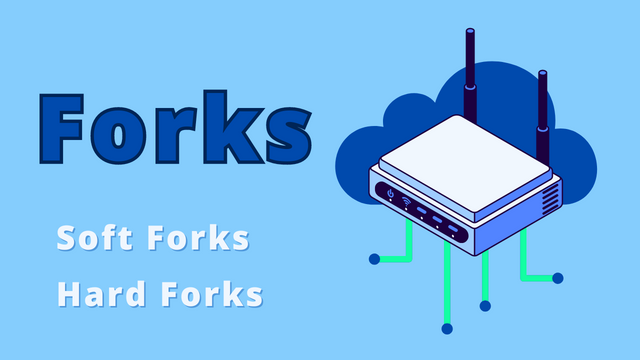What are Forks, Types and Processes in Blockchain Evolution
Forks play an important role in the evolution of blockchain networks. Forks provide significant changes in regulations and community consensus. Forks have two types. These two types are soft forks and hard forks. Each type of fork has its implications for blockchain groups and contributors. This post explores the various kinds of forks and the procedure with the help of blockchains undergo forks.

Forks arise in a blockchain network when the policies of the blockchain network are changed. Then, the new fork has a different set of rules in governance than the old one. Protocols can be upgraded for various reasons such as consensus modifications and disagreements among network participants.
Types of Forks
There are two types of forks as I have mentioned earlier.
Soft Forks
A soft fork is an upgrade to the blockchain protocol. It supports the previous working mechanism. All the nodes running with older versions of the software can still validate transactions by participating in the network. Soft forks commonly tighten the consensus policies, making formerly valid blocks invalid. As long as a majority of miners and nodes adopt the new rules, the fork stays temporary and the network continues as one.
Hard Forks
Hard forks do not support the previous working of the blockchain. They cause a permanent change in the blockchain governance. Hard forks implement a new set of rules in the previous blockchain. And the separate chains are developed. Nodes and miners upgrade to the new software to become eligible to participate in the community.
Reasons for Forks
There are several reasons for the arousal of the forks in the blockchain. Some of them are given below:Protocol Upgrades
Forks are regularly initiated to put into effect protocol upgrades, together with introducing new capabilities, improving scalability or addressing safety vulnerabilities. These enhancements focus to enhance the functionality and performance of the blockchain network.
Changes in consensus
Disagreements in consensus methods can also be a fork such as a change from proof of work to proof of stake or changing block size limits. These changes can have a significant impact on network security, decentralization and performance.
Community Divisions
Forks arise from ideological and philosophical differences in the blockchain community. Conflicting visions of the future direction of the network can lead to divisions. It results in different chains with different governance models and development priorities.
The Hard Forks Method

Proposal
The process usually begins with a proposal for a protocol upgrade or consensus change. Community members, businesses or key supporters can support proposed changes through online forums, social media, or governance mechanisms.
Implementation
Once the proposal has enough support, the developers start implementing the necessary code changes. The new software is thoroughly tested to ensure compatibility and functionality. After the implementation and complete testing activation of the hard fork is carried out.
Fork Execution
Hard forks are executed at a specific block height or time. And it results in two separate chains. Nodes and miners that have upgraded to the new software consolidate the connections and secure the new chain. But the nodes using the old version of the software remain in the original chain.
Complexities of Forks
Execution of the new forks is a sensitive case and it needs a lot of care while it's development and implementation to avoid losses.Chain Splitting
The hard forks causes the blockchain to split permanently, creating two separate chains with separate transaction histories. Each chain can create its own community, ecosystem and value proposition.
Community consensus
Hard forks often express disagreements or tensions in the blockchain community. Maintaining trust and cooperation is essential to resolving these conflicts and achieving consensus on the future direction of the negotiations.
Innovation and Experimentation
Hard forks encourage innovation and experimentation within the blockchain ecosystem. It enables different processes in governance, consensus and development. Competition between chains can promote growth and accelerate technological development.
Conclusion
Forks are an inherent part of the blockchain networks development process. They enable protocol upgrades, consensus changes and community driven innovation. Although forks can cause temporary destruction and disagreement but they demonstrate the power of decentralized systems change and adaptation. By understanding the types of forks and the mechanisms through which they occur blockchain participants can navigate these changes and help the ecosystem continue to grow and develop.
Upvoted! Thank you for supporting witness @jswit.
X Permotion
https://twitter.com/shabbir_saghar/status/1788107778055180536?t=Z4EFedUyaq9H9DrIi54bdQ&s=19
Note:- ✅
Regards,
@jueco
@jueco Thankyou so much for your rivew